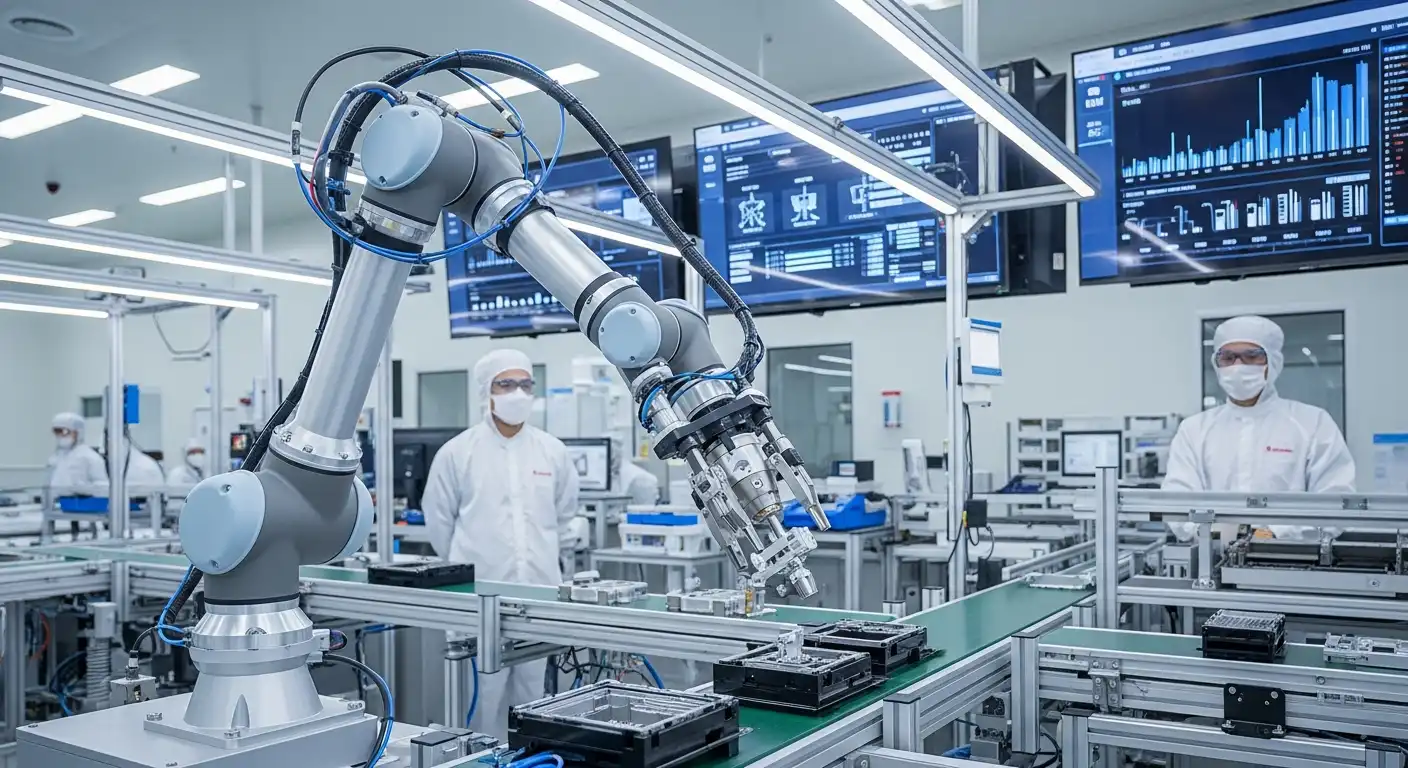In an era of rapid technological advancements and digital transformation, automation has emerged as a cornerstone for achieving operational efficiency, productivity, and innovation. By leveraging automation technologies, businesses and industries can streamline processes, reduce manual intervention, and enhance accuracy, paving the way for increased competitiveness and growth. This article delves into the evolution, applications, benefits, and prospects of automation, highlighting its transformative impact across various sectors.
Understanding Automation
Automation refers to using technology to perform tasks with minimal human intervention. It encompasses many applications, from simple mechanized processes to complex systems driven by artificial intelligence (AI) and machine learning (ML). Automation aims to enhance efficiency, consistency, and reliability by eliminating repetitive and time-consuming tasks, allowing human resources to focus on higher-value activities.
Historical Evolution
The concept of automation has evolved significantly over the decades. It began with the Industrial Revolution, which introduced mechanized manufacturing processes. The advent of computers and digital technologies in the 20th century further revolutionized automation, developing programmable logic controllers (PLCs) and robotics. Integrating AI, ML, and the Internet of Things (IoT) has given rise to intelligent automation systems capable of making real-time decisions and optimizing complex workflows.
Types of Automation
Automation can be categorized into various types based on its complexity and application:
- Fixed Automation: Involves pre-programmed sequences for repetitive tasks, commonly used in manufacturing lines for mass production.
- Programmable Automation: Allows for reconfiguration and customization of tasks, suitable for batch production and varying product types.
- Flexible Automation: Enables dynamic adaptation to different tasks without significant downtime, ideal for industries requiring agility and customization.
- Intelligent Automation: Utilizes AI and ML to perform tasks that require decision-making and learning. It is applicable in sectors like finance, healthcare, and customer service.
Applications of Automation
Automation finds extensive applications across diverse sectors, driving efficiency, accuracy, and innovation:
Manufacturing and Industry
Automation has revolutionized manufacturing by enabling precision, scalability, and cost reduction. Robotic process automation (RPA) and industrial robots perform highly precise tasks such as assembly, welding, painting, and quality control. Smart factories leverage IoT sensors and AI-driven analytics to optimize production processes, monitor equipment health, and minimize downtime, improving productivity and reducing operational costs.
Healthcare
Automation enhances patient care, diagnostics, and administrative tasks in the healthcare sector. Robotic surgery systems provide minimally invasive procedures with greater precision, reducing recovery times and improving patient outcomes. Automated diagnostic tools and AI algorithms analyze medical images and patient data, aiding in early detection and accurate diagnosis of diseases. Additionally, automation streamlines administrative tasks such as appointment scheduling, billing, and patient record management.
Finance and Banking
Automation in finance and banking improves efficiency, accuracy, and security. RPA automates repetitive tasks such as data entry, transaction processing, and compliance reporting, reducing the risk of human errors. AI-powered chatbots and virtual assistants enhance customer service by providing instant responses and personalized assistance. Fraud detection systems use machine learning algorithms to identify suspicious activities and mitigate real-time risks.
Retail and E-commerce
Automation transforms retail and e-commerce by optimizing supply chain management, inventory control, and customer experiences. Automated warehouses use robotics and AI to manage inventory, fulfill orders, and streamline logistics. Personalized recommendation systems powered by AI enhance customer engagement and drive sales by suggesting relevant products based on user preferences and behavior.
Benefits of Automation
The adoption of automation brings numerous benefits to businesses and industries, contributing to enhanced performance and competitiveness:
Increased Efficiency and Productivity
Automation reduces manual intervention and accelerates processes, increasing efficiency and productivity. Tasks that once took hours or days can now be completed in minutes, helping organizations handle higher volumes of tasks and meet customer demands more effectively.
Improved Accuracy and Consistency
Automation ensures consistent and error-free task execution, minimizing the risk of human errors and variations. It is particularly crucial in industries where precision and quality are paramount, such as manufacturing, healthcare, and finance.
Cost Savings
Organizations can reduce labor costs and operational expenses by automating repetitive and labor-intensive tasks. Additionally, automation optimizes resource utilization and minimizes waste, contributing to overall cost savings and profitability.
Enhanced Customer Experiences
Automation enhances customer experiences by providing faster and more reliable services. AI-powered chatbots, personalized recommendations, and automated support systems ensure timely responses and tailored interactions, leading to higher customer satisfaction and loyalty.
Future Prospects of Automation
The future of automation holds immense potential for further advancements and transformative impacts across industries:
Integration of AI and Machine Learning
Integrating AI and ML will drive intelligent automation, enabling systems to learn from data, create informed decisions, and adapt to changing conditions. It will lead to more sophisticated and autonomous automation solutions capable of handling complex tasks and improving over time.
Expansion of IoT and Edge Computing
The proliferation of IoT devices and edge computing will enhance automation capabilities by enabling real-time data collection, analysis, and decision-making at the network’s edge. It will facilitate faster response times and improved operational efficiency in various applications, from smart cities to industrial automation.
Workforce Transformation
As automation becomes more prevalent, the workforce will transform. While automation will replace certain manual tasks, it will also create new opportunities for roles that require human creativity, problem-solving, and strategic thinking. Organizations must invest in reskilling and upskilling their workforce to thrive in the automated era.
Ethical and Regulatory Considerations
The widespread adoption of automation raises ethical and regulatory considerations, such as data privacy, security, and the impact on employment. Policymakers and industry stakeholders must collaborate to establish frameworks that ensure responsible and ethical use of automation technologies.
Conclusion
Automation is a driving force behind the evolution of industries, enabling organizations to achieve unprecedented levels of efficiency, accuracy, and innovation. By embracing automation, businesses can streamline processes, enhance customer experiences, and stay competitive in an increasingly digital world. As technology advances, the integration of AI, IoT, and other emerging technologies will further propel the capabilities of automation, shaping the future of work and industry. The journey towards a fully automated future is one of continuous learning, adaptation, and collaboration, guided by the promise of enhanced productivity and transformative progress.





